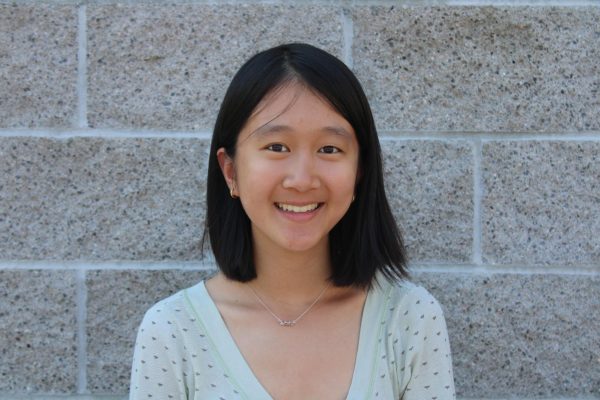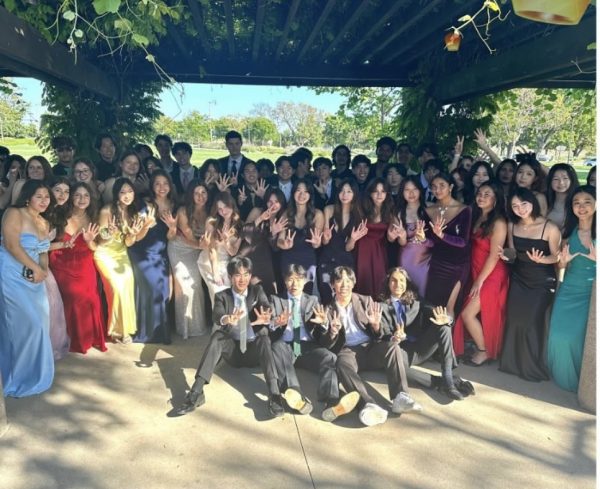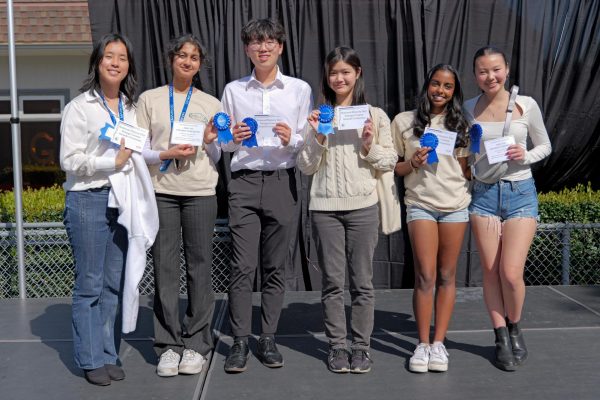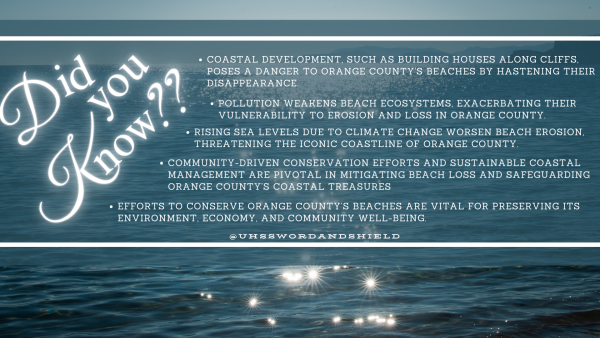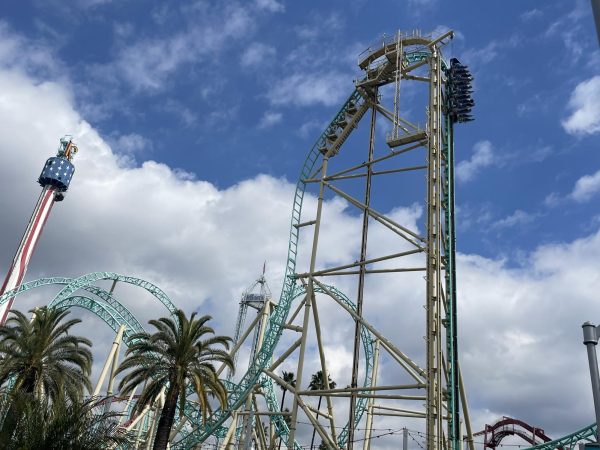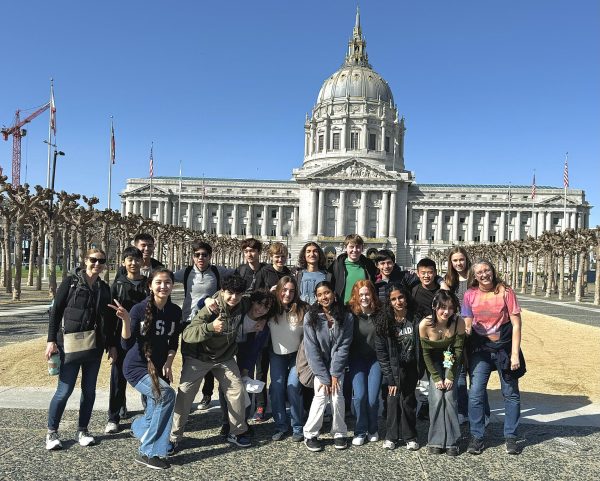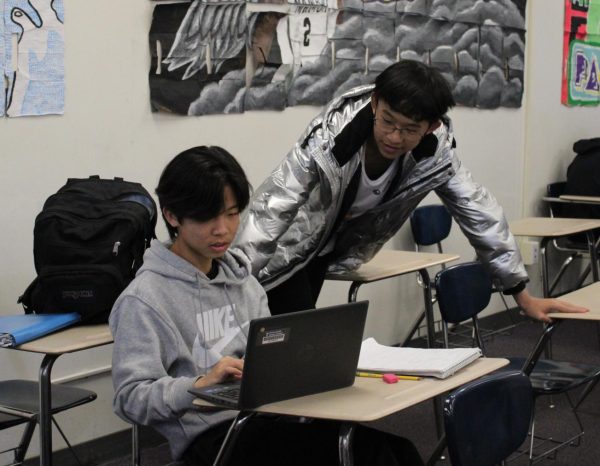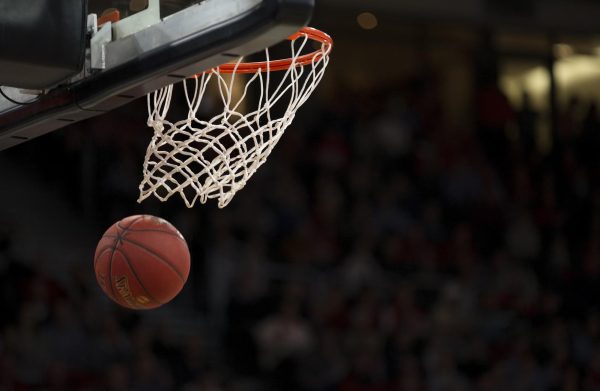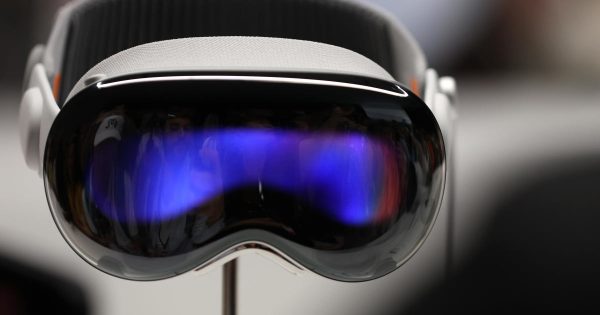UHS Students Win Second at Science Bowl and Science Olympiad
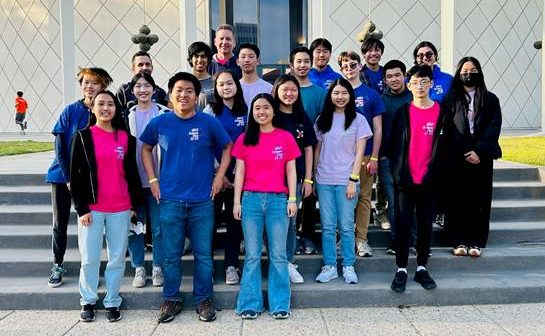
Photo provided by David Knight
UHS Science Olympiad team at Caltech for the Southern California Science Olympiad state tournament.
May 17, 2023
The UHS Science Club competition teams, Science Bowl and Science Olympiad had record highs at the state and national competitions this spring.
On May 1, the UHS Science Bowl team placed second overall in the National Ocean Science Bowl competition in Washington D.C. The competition is in a fast-paced buzzing format that tests teams on biology, chemistry, earth science, physics, energy and math. Team members included senior Captain Ben Fan, sophomore Yufei Chen, and juniors Wendy Cao, Nathan Ouyang and Julianne Wu.
On April 8, the UHS Science Olympiad (SciOly) team placed second overall in the Division C Southern California Olympiad State Tournament at the California Institute of Technology (Caltech) for the first time since 2006. This was also the first in-person state competition since before COVID-19. As co-captains, senior Aniyah Shen and junior Howard Ji led the SciOly team of 15 in which everyone competes in two to five of the 23 events with one or two partners in various fields of science, such as engineering, earth science, biology, chemistry and physics. Team members included freshmen Sarah Xiong and Feodor Yevtushenko, sophomores Chen, Miles Hexun, Hannah Kusumo, Zach Piedad, and Minerva You, juniors Cao, Devin Chan, Timi Fang, Om Kamat, Kristine Lu, James Shi, and Wu and seniors Mae King and Alyssa Tang.
Before participating in the science competitions, Science Olympiad and Science Bowl members spent numerous hours training with the help of their advisors, AP Biology teacher Mr. David Knight and AP Chemistry teacher Mr. Nick Brighton.
“Science Olympiad could not be possible without our advisors,” Shen said. “They are sources of personal support for each of our team members, and for captains, they provide invaluable advice and input when it comes to balancing teams and outreach efforts.”
As they trained for state and national competitions, members of the Science Bowl and Science Olympiad used various resources and time management strategies to prepare.
“I individually dedicated countless hours to thoroughly studying [Science Bowl] textbooks [and] online resources and practicing with past competition materials,” Cao said. “As a team, we scheduled weekly practice sessions to facilitate better teamwork and communication skills, get used to the format of the competition and enhance our speed and recall.”
Throughout the many rounds of competition, members of the Science Bowl and Science Olympiad coordinated with their teammates to maximize their results.
“I am fortunate to work with my talented [Science Bowl] teammates and was motivated to learn as much as I can from them and improve my overall skills,” Cao said. “Our positive collaborative environment, where we respect each other’s views, contribute equally and celebrate achievements together, greatly helped me in doing well in the competition.”
Science Club members were thrilled after receiving numerous awards at the state and national levels.
“With each place that was announced [at the award ceremony], my chest went tight, with my heart pounding in anticipation,” Ji said. “Since I had joined the team, this was the best placement we had gotten, and it just felt empowering for me as captain to see the team succeed.”
Throughout the competition, members of Science Bowl were able to form a closer bond beyond their studies.
“We were also able to meet Congresswoman Katie Porter, become members of the Library of Congress and go on tours of monuments and museums,” Cao said. “Amidst all the excitement of competing and exploring Washington D.C., my fondest memories come from just having fun with my team, whether that was playing card games, singing along to Taylor Swift or just enjoying each other’s company, which brought us closer together and helped us work even better as a team.”
Science Club members recognized the importance of high schoolers studying science in real-world applications and connections.
“Science is one of the most significant determinants of our future, and I believe it is our collective responsibility to understand that future and approach it humanely,” Shen said. “I believe it has the capacity to solve our problems concretely, and, when applied for good, can inspire people to be better to the planet, each other and the larger universe that we call home.”
Science Club members offered their advice to students looking to get involved in higher-level science activities outside of the classroom.
“If you’re passionate about it, really pursue it,” Ji said. “Dive into what you can, and if you need help, remember that there’s a community of fellow students around you who are just as interested in science.”


